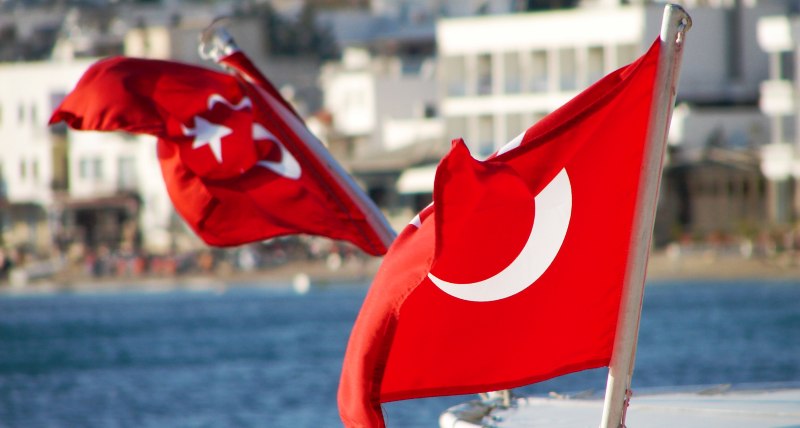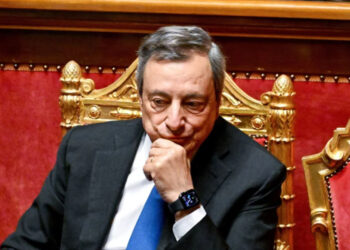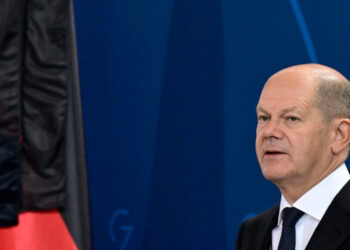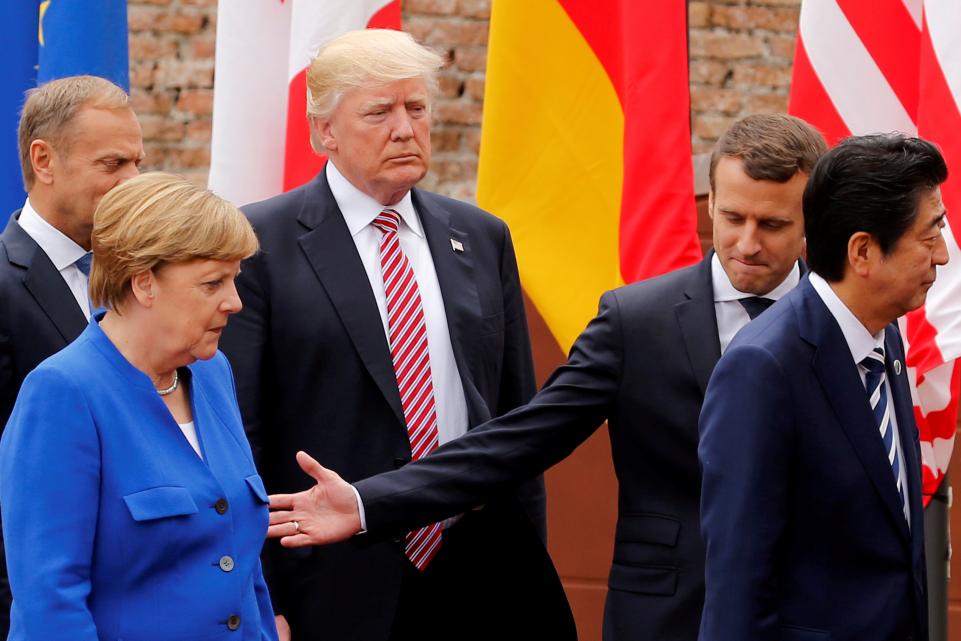In less than a week, Turkey’s relations with its Western allies, the U.S., the U.K., and Germany, plunged into an abyss, raising the specter of a reassessment of the nature of the relationship with Ankara as sustaining healthy dialogue increasingly appears untenable.
Earlier this week, Turkey arrested six members of London-based Amnesty International, including German national Peter Steudtner, prompting a swift rebuke from Berlin and London. It also sparked international uproar over the crackdown on human rights groups operating in Turkey.
Turkey’s ties with the U.S. also suffered a tremendous loss of trust after state-run Anadolu news agency’s report that showed maps of locations of two U.S. bases and eight military points in Kurdish-held parts of northern Syria.
In remarks to The Globe Post, Pentagon Spokesman Eric Pahon said: “The release of sensitive military information exposes Coalition forces to unnecessary risk and the potential to disrupt ongoing operations to defeat ISIS.”
Though Anadolu removed parts of the report from its website, it has left a debilitating damage on bilateral relations already tested by clashing interests and competing agendas in Syria. Turkey’s efforts to repair the damage may prove more difficult than ever.
“Erdogan has declared many times that he views the US arming of the YPG a hostile act by the United States. This is one more indication that he opposes US policy,” Joshua Landis, Director of the Center for Middle East Studies at the University of Oklahoma, told The Globe Post.
“It falls short of actually attacking US soldiers, but the publication of base locations indicates that Turkey will not stand idly by,” he said. “It is a clear threat of possible action in the future.”
Turkey and the U.S. are at odds over their different views of the Syrian Kurdish militia, Peoples’ Protection Units (YPG), which is the most potent fighting force on the ground against the Islamic State. Turkey sees the YPG as an extension of the Kurdistan Workers’ Party (PKK), a domestic insurgent group fighting regional autonomy in southeastern Turkey for four decades.
Turkey’s unshakable opposition to the Syrian Kurds hobbles an effective cooperation between the two NATO allies in Syria, and risks jeopardizing anti-ISIS fight there.
“The last thing the United States needs is for Turkey to go to war against America’s allies in Syria,” Mr. Landis said.
Turkey-German Ties On Edge
The arrest of Amnesty International representatives marked the tipping point of a wearing patience, reflecting growing exasperation on behalf of the E.U. and Western countries as the Turkish authorities’ post-coup clampdown has eventually expanded to target international organizations and their local members. Germany has found itself scrambling to come to grips with an unpleasant fact: how to deal with a palpable authoritarian tilt in Turkey, a factor that has now pervaded Ankara’s foreign relations.
In a display of novel approach unseen in recent memory, Berlin is now seriously contemplating economic moves against Ankara, from suspending expansion of the customs union between Turkey and the E.U. to reviewing export credit guarantees given to German companies doing business in Turkey. German foreign minister has issued a warning for German citizens against travel to Turkey for summer vacation, pointing to the unpredictability of the authorities there.
“Everyone can be affected. The most absurd things are possible,” German Foreign Minister Sigmar Gabriel said after he cut his holiday short to manage the recent row with Turkey.
German Finance Minister Wolfgang Schaeuble was blunter in his portrayal of Turkey as an authoritarian country resembling former East Germany (GDR).
“Turkey is arresting people arbitrarily and no longer upholds even minimal standards of diplomatic conduct,” he told Bild newspaper on Friday. He said the situation reminds him of East Germany, adding that Berlin could no longer guarantee the safety of German tourists traveling to Turkey.
The latest diplomatic standoff has plunged relations into historic lows since the World War II. Economy emerges as the epicenter of the new showdown, with Germany pondering options how to navigate in its turbulent relationship with Turkey.
“We need our policies towards Turkey to go in a new direction… We can’t continue as we have done,” the foreign minister said, signaling that Germany would reconsider corporate investment guarantees. Germany is Turkey’s largest trading partner in the E.U. as trade volume hovers around $36 billion annually.
“We need to be clearer that we have been until now so those responsible in Ankara understand that such policies are not without consequences,” Mr. Gabriel said at a press conference on Thursday.
But his remarks on Germany’s possible moves on economic front had a broad ripple effect in Turkey, shattered the unassailable feeling in Ankara where the Turkish leaders had been used to think that mutual interdependence lent great latitude for diplomatic freewheeling, employing threatening elements at disposal without serious regard for retaliation.
“We cannot advise anyone to invest in a country when there is no legal certainty and where companies, even entirely respectable companies, are labeled as terrorists,” said the German foreign minister in a dramatic break with the traditional caution that characterized Germany’s long-held approach against Turkey. “I can’t see how we as a government can guarantee German corporate investments in Turkey when we’re seeing arbitrary, politically motivated confiscations of [property] there.”
Turkey’s relationship with Germany was increasingly defined by rancor and mutual war of words over the past year but somehow managed to hold given the need for cooperation to keep a shaky migrant deal working. But the recent dispute has reached a fever point, rarely seen before. It is a totally different story for its breadth and depth, with Germany dangling the prospect of a genuine reassessment of the state of business affairs with Turkey.
It is this last threat that sent rippling echoes in Ankara, causing panic.
After Germany’s swift reaction, the Turkish authorities moved to cool down the escalating tension. Turkey’s Economy Minister Nihat Zeybekci even called on the German officials to refrain from “words that would cause lasting harm … to economies.” He urged Germany to reassess recent remarks that he deems inappropriate.
Turkish President Recep Tayyip Erdogan, however, struck a defiant tone, sharpened his scathing criticism of Germany. “I strongly condemn statements that aim to scare companies that invest in our country,” President Erdogan said.
“I want to remind our German friends and the world that you are not powerful enough to blacken Turkey. You are not powerful enough to scare us,” Associated Press quoted Mr. Erdogan as saying.
Turkish Foreign Minister Mevlut Cavusoglu also emerged as unrepentant, adopting a bellicose rhetoric. He said Turkey will not give in to threats, vowing retaliation if German remarks take the form of a policy.
Part of the tension emanates from media reports that Turkey has blacklisted some of the German companies on charges of supporting terrorism. Germany’s Economy Minister Brigitte Zypries underlined that point, and noting that it renders making “farther business and investment in Turkey extremely difficult.” The Turkish president dismissed such claims, but it did little to alleviate growing German anxiety.
Despite President Erdogan and the Turkish foreign minister’s rough-edged approaches, Prime Minister Binali Yildirim appeared to be more conciliatory, calling on Germany to act with calm.
He said there would be tensions in relations, from time to time, caused by domestic politics. “There is no benefit to Germany or to Turkey if relations are damaged,” he added in what seems an effort to de-escalate the ensuing tension.
In a sign of a further breakdown in mutual trust, German newspaper Bild reported that Berlin put arms projects with Turkey on hold, adding a new layer of friction to already strained relations.
The Federal Office of Economics and Export Control (BAFA) will not be able to issue new export approvals if Berlin imposes the ban. The German government exported armaments worth 83.9 million euros to Turkey last year. Only for first 4 months of this year, Germany gave the green light for 22 million euros of export.
Six members of Amnesty International have been imprisoned on charges of abetting armed terrorist organizations earlier this week. The legal charges are dismissed by Germany as absurd and nonsense, while the investigation is seen as politically motivated, as part of Turkey’s larger crackdown on human rights organizations.
More than 150,000 public servants have been dismissed in a sweeping purge, while 50,000 people placed behind bars since a failed coup attempt last year. Apart from media outlets, human rights organizations have also found themselves in government crosshairs in an atmosphere brimming with paranoia, xenophobia and political intrigue.
The U.K. is also enraged with the arrests of Amnesty International activists. U.K. Foreign Secretary Boris Johnson held a phone conversation with his Turkish counterpart, Mr. Cavusoglu, to relay his concerns over the arrests.
German Federal Foreign Office summoned the Turkish ambassador to convey its exasperation, demanded the urgent release of activists, including its citizen. In most clear terms, the ministry rejected Turkey’s argument for labeling activists as terrorists.
“Accusations of links to terrorist organizations have clearly been invented — that is, unless one wishes to classify Amnesty International and other human rights organizations as terrorist organizations,” a statement from German Federal Foreign Office said. “That is absurd.”
Erdogan Pushes His Limits In Germany Row
For Fadi Hakura of Chatham House, President Erdogan might have “overplayed his hand with Turkey’s largest trading partner and the dominant EU member state … as the Turkish economy stagnates.”
He thinks that longer-term implications of the crisis for Mr. Erdogan’s “credibility among European peers will not be easily repaired.” They will be more cautious and “less keen to engage in a strategic dialogue with him or deepen political and economic ties with Turkey.”
The dynamics of the international economy and regional geopolitics place both Turkey and its Western allies in an awkward position, land them in an unavoidable strategic dilemma. Whatever the discord that currently characterizes the relations, both sides still need each other, a factor that makes any dramatic break a remote option given the high level of mutual economic interdependence.
“Germany’s rebukes are dramatic but remain grounded in a limited number of grievances. In the medium and long-term, Turkey’s allies in Europe and North America do not have blueprint for engagement with Turkey, let alone a realistic vision of where the relationship is headed with Turkey,” Ryan Gingeras, an Assistant Professor at Naval Postgraduate School, told The Globe Post.
“It may be said that Turkey does not have a plan either,” Mr. Gingeras, an expert on Turkey and Balkans, added.
“For whatever alternatives Ankara may tout regarding alliances with Moscow or Beijing, Turkey’s deep economic, military and political ties with the EU and the United States cannot simply be ignored or abandoned,” he said, pointing to strong bonds that serve as a shield against strategic re-alignment or a radical break.
Mr. Hakura raised the same point in his CNN analysis, citing Europe, whatever Erdogan’s mistrust, as Turkey’s main source of trade, flow of foreign direct investment and technology.
“That reality and their geographic proximity will keep them bound together in a challenging relationship — increasingly tilting to Turkey’s disadvantage,” he wrote.
Echoing that position, Tahir Abbas, Senior Research Fellow at RUSI, offered a similar analysis cutting through geopolitics and centuries of engagement with Europe.
Speaking to The Globe Post, he said however much President Erdogan is promoting a form of ethnoreligious nationalism that focuses on essential populist noises, much of which are also anti-Western, there is still a need to maintain positive relations with the EU.
For him, Turkey, without EU, would be stranded in a region with significant internal turmoil.
“This has always remained the case, and especially since the demise of the Ottoman Empire.”























